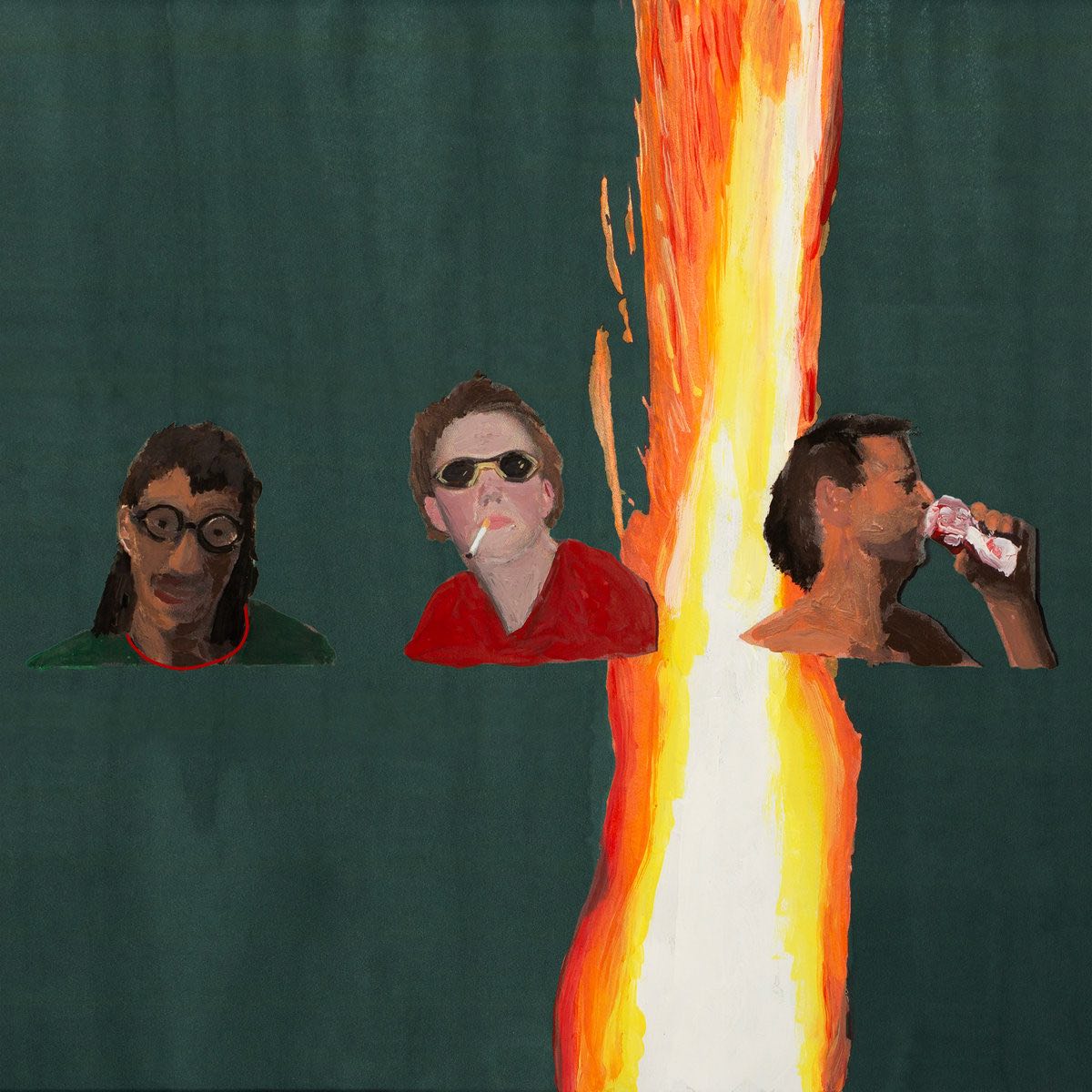MJ Lenderman
Manning Fireworks
ANTI-
ABOVE THE CURRENT
MJ Lenderman may very well be our patron saint of sad clowns. As much as that sounds like a slight, it’s a compliment right in line with the songwriter’s storytelling about knaves “sneakin’ backstage to hound the girls at the circus.” The plight of the sad clown is a complicated thing, threading devastations of all sizes with the (admittedly very funny) objective stupidity of our very existence. Lenderman underlines just as much on his new album Manning Fireworks’ “Joker Lips,” with what could double as a directive about his work as a whole: “Please don’t laugh / Only half of what I said was a joke.”
Lenderman’s secret weapon has always been his sharp wit, only barely masking a deeper emptiness, longing, or search for purpose (after all, this is the artist whose last record was at its most sincere with the line “Jackass is funny / Like the Earth is round”). Boat Songs was a breakthrough for the Wednesday guitarist that heralded his knack for biting humor, only to reveal its excess as a means to bury raw emotion. Now, only two years later, Manning Fireworks sharpens that same tone, making it more precise. If Boat Songs was Lenderman approaching his first studio outing like a Drive-By Truckers obsessed kid in an Athens record shop, Manning Fireworks is a staggering refinement of no-frills songwriting hardly seen outside 1970s imperial phases—think early Randy Newman’s pitch-black humor if he could use Cars as a touchpoint for a DUI narrative, or Steely Dan if their studio perfectionism coincided with more alt-country twang and cum jokes.
Gone are the bells-and-whistles novelties that dotted Boat Songs (as fun as those synth horns were); in their place, Manning Fireworks’ arrangements are more muted, somber, and gripped with a tangible ache. On the understated title track, Lenderman never lets the song rise above a measured waltz. His lyrics—front and center—still include deadpan howlers, but the sentiment morphs into something wearier. No joke here is ever without tragic shadow, yet Lenderman never casts a stone against his subjects, even if he may sometimes openly call them jerks.
“She’s Leaving You” begins with the funniest couplet on the record (“You can put your clothes back on / She’s leaving you”), but swerves into a more damning indictment of a collective “we” that “all got work to do.” “Wristwatch” similarly zigzags from line to line, its narrator’s defenses increasingly outlandish in response to a claim that he's wasting his life. Then the hook just as quickly slips into something more direct and downtrodden: “I’m all alone.” There’s a startling clarity in Lenderman’s narratives of suckers and fools, and it often emerges via an unexpected sympathy for these insubstantial devils.
None of these figures is without some recognizability, with Lenderman probing common shorthands for social unease across the record. Shame and Catholic guilt creep in a couple times, and his male subjects seem to keep doing unsavory things in hotels—unspoken romantic and sexual anxieties intertwining both threads. In the album’s final stretch, Lenderman downplays his jocular mode for more earnest fare—save for its lyrics about wet dreams, penultimate track “On My Knees” could easily slot alongside the discographies of Songs: Ohia or Wilco.
The careful balance of humor and poignance is what makes Manning Fireworks such a layered, rewarding listen, but the end of the record proves that Lenderman could just as well go wholly sincere without losing any of the dimension in his songwriting. Though closer “Bark at the Moon” begins with knowingly dumb puns (“I could really use your two cents, babe / I could really use the change”), its ending plays into the stunted insularity of its narrator, resigned to letting his love leave him while he stays in his own world and plays Guitar Hero. In the six minutes of guitar feedback and effects that follow, there’s no humor to be found. The clown has left the stage, removed his makeup. Underneath, only the sorrow remains.







